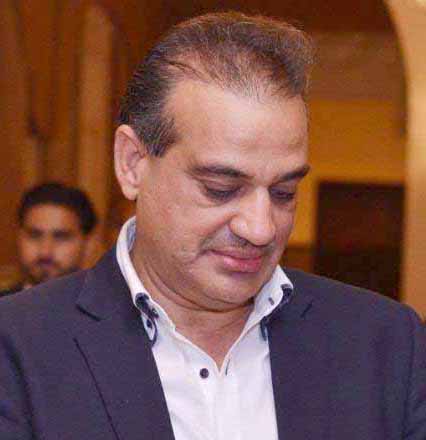Opinion
Ansar M Bhatti
Has the dust settled? This is perhaps the most pressing question following the controversial passage of the 26th Constitutional Amendment in Parliament. According to this amendment, the superior judiciary is no longer to function independently in matters such as the appointment of judges and the evaluation of their performance; these powers have been transferred to Parliament. Additionally, the amendment restricts the scope of the apex court’s authority by limiting its ability to take suo motu actions. In essence, the government appears to have significantly curtailed the independence of the judiciary, rendering it effectively powerless.
It is now an open secret that the proposed constitutional amendment was not an original idea conceived by Parliament. Instead, both the PPP and PML-N were tasked with pushing it through if they wished to ensure their political survival. For the PPP, the reward dangled was the prime ministership for Bilawal Bhutto, contingent on securing the passage of the initial 60-point amendment package, which would have granted significant powers to the Establishment. However, thanks to Maulana Fazal ur Rehman’s outright refusal to support the draft, the original proposal was sidelined.
A revised version of the amendment was then presented to Fazal ur Rehman, which he accepted, albeit with some conditions.
For PML-N, the stakes were made crystal clear: their hold on power hinged entirely on the passage of this amendment. Moreover, it was unequivocally conveyed to the party leadership that Nawaz Sharif would not be permitted to leave the country until the amendment was approved. As a result, PML-N seemingly had no choice but to comply, even though this move is likely to cost them politically. Their public support had already diminished, and with the passage of this amendment, their popularity is expected to decline even further.
“Ostensibly, the idea of controlling the superior judiciary involves multiple facets, both internal and external. Internally, from the Establishment’s perspective, it was crucial to maintain a firm grip on the higher judiciary to ensure favorable rulings. The lower judiciary, already under control, remains ever prepared to ‘dispense justice’ when directed.”
The Pakistan government has occasionally faced challenging situations when the apex court issued verdicts affecting foreign investors. Two prominent cases stand out.
First, in the Reko Diq case, the Supreme Court nullified the entire agreement, forcing the affected party to seek legal recourse. The international court ruled against the Pakistan government, resulting in a hefty penalty that the government had to pay.
In another instance, the Supreme Court annulled the agreement with the Turkish power generation company, Karkey. This decision strained relations with the Turkish government. Karkey subsequently filed a claim for millions of dollars in penalties. However, with intervention from both the Pakistani and Turkish governments, the issue was eventually resolved. Then-Prime Minister Imran Khan announced that, with the help of Turkish President Recep Tayyip Erdoğan, the dispute was “amicably resolved,” saving Pakistan from a $1.2 billion penalty imposed by the International Centre for Settlement of Investment Disputes (ICSID).
These cases, among others, have led to significant embarrassment for the government. This has perhaps fueled the argument by some in power that there should be more oversight or control over the judiciary to prevent such outcomes.
The key question now is whether the new system will function effectively, as doubts linger. Concerns have been raised that the system could create internal divisions and confusion among the judges. The government is expected to elevate Justice Yahya Afridi to the position of chief justice, despite his being third in the seniority list. Some speculate that Justice Mansoor Ali Shah, who is widely regarded as the most deserving candidate, may also be considered for the role.
Justice Mansoor is a bold and highly competent judge. If anyone can match the intellect, insight, presence of mind, and eloquence of the outgoing Chief Justice Qazi Faez Isa, it is Justice Mansoor. While Qazi Faez Isa was undoubtedly an exceptional judge, his perceived bias against the PTI has overshadowed his tenure as chief justice. Justice Afridi, by contrast, is seen as a more low-profile and less assertive figure. However, it is possible that once in leadership, he could defy expectations and prove himself to be a strong chief justice.
The lawyers are expected to initiate a movement opposing these amendments. The PTI has signaled its intention to challenge the matter in the Supreme Court. According to the amendment, all such petitions will now be heard by a Constitutional Bench, appointed by the government. This bench may consist of five or more judges. From a legal and technical standpoint, the amendments may not hold up, as the intent behind them appears questionable. Additionally, the timing of the amendment’s passage is likely to influence the bench’s decision-making process.
Bilawal Bhutto, speaking in the National Assembly before the vote on the amendment, referred to the Charter of Democracy (CoD) signed between the Pakistan People’s Party (PPP) and Pakistan Muslim League-Nawaz (PML-N) in 2006. He emphasized that this historic agreement laid the foundation for the establishment of the constitutional bench and made it clear that neither party would ever come to power with the assistance of the establishment. His remarks alluded to how both parties had once committed to standing independent of such forces.
Bhutto also criticized certain judges, holding them responsible for the disqualification and ouster of former Prime Ministers Yousaf Raza Gillani and Nawaz Sharif. However, he seemingly ignored the broader context that the judiciary often acts in collaboration with the establishment. This reflects a harsh reality of Pakistan’s political dynamics, where judges and the establishment work in tandem to influence political outcomes.
Despite this, Bhutto’s criticism focused solely on the judges, perhaps overlooking the deeper entanglements of both the PPP and PML-N with powerful elements in the establishment. Both parties have, at times, been brought to power with the backing of these influential forces, which might explain why their leadership tends to deflect full responsibility onto the judiciary.
The international stakeholders, particularly those with vested interests in Pakistan, have been eager to see the judiciary’s influence reduced. These foreign countries are concerned about their investments in cases like Karkey and Reko Diq, may have pushed for these judicial constraints to protect their economic interests. This reflects a broader international dimension to Pakistan’s internal power struggles, where foreign economic stakes sometimes drive domestic political changes.

















